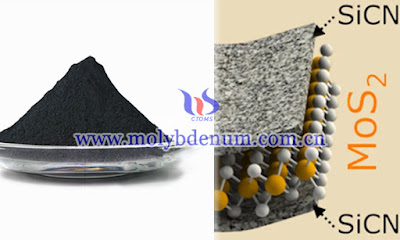Molybdenum disulfide (MoS2) is a two-dimensional layered material composed of two chemical elements, molybdenum and sulfur, with excellent optical, electrical, magnetic, mechanical and thermal properties. It is widely used in energy storage, catalysis, semiconductor, lubrication and other fields. Its main uses are as follows:
1. As an additive for solid lubricants: MoS2 powder is known as “king of solid lubrication", the friction coefficient is between 0.05 and 0.09, and has the advantages of good dispersion, non-sticking and anti-oxidation, etc. It can be added to various greases to form a non-stick colloidal state, which can increase the lubricity and extreme pressure properties of the grease, making it more suitable for high temperature, high pressure, high speed, and high load applications.
2. As a modifier for lithium-ion battery electrode materials: MoS2 is a low-dimensional transition metal layered material with a large distance between layers, which endows it with high lithium ion accommodation capacity and wide ion transport channels. Combined with graphene, it can effectively make up for the lack of low storage capacity of existing pure graphite anode materials.
3. As a catalyst: Because of its high catalytic activity, good chemical stability, preferentially exposed active sites, and long-range/short-range ordered atomic arrangement, MoS2 is expected to replace noble metal platinum to achieve electrochemical hydrogen evolution reaction.
4. Making transistors: Ultra-thin MoS2 transistors with a length of less than 100 nanometers provide greater possibilities for the large-scale popularization of high-performance flexible electronic products such as medical monitors, fitness trackers, smart clothing and foldable smartphones.
5. Used in bionic eyes: Indium-doped molybdenum disulfide has the characteristics of ultra-low power consumption optical synapses, which can effectively reduce the power consumption of bionic eyes and solve the problem of difficult surface processing and integration.
6. For the treatment of joint pain: MoS2 coating is the key material of "targeted nanoprobe" in the nanotechnology of osteoarthritis targeted analgesic diagnosis and treatment.
7. Used in-situ gelation system: A new in-situ gelation system designed by Texas A&M University that does not require photoinitiators uses the photothermal properties of MoS2 and the inherent phase change ability of thermally responsive polymers. Near-infrared radiation activates dynamic polymer-nanomaterial interactions.



没有评论:
发表评论